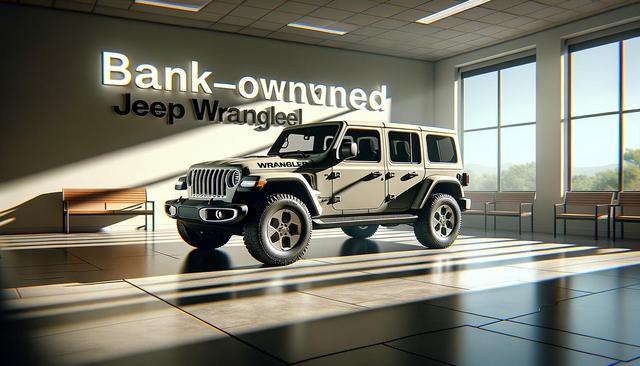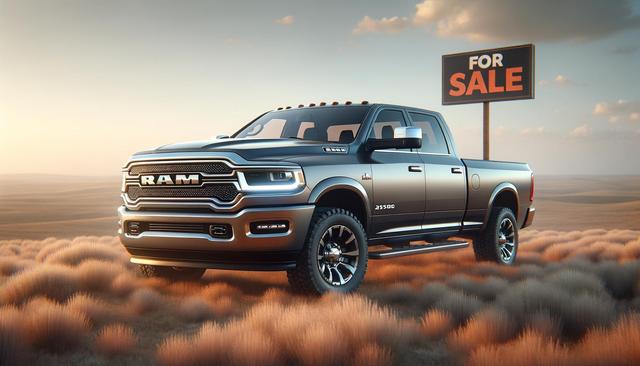What Does ‘Bank-Owned’ Mean?
When a vehicle is referred to as ‘bank-owned,’ it typically means that the previous owner defaulted on a loan, and the bank repossessed the vehicle. These vehicles often end up at auction or are listed for sale directly by the lender. A bank-owned Jeep Wrangler, therefore, may be offered at a lower price than similar models in the traditional used car market. Since banks aim to recover outstanding loan balances quickly, they are typically motivated sellers, making this an appealing option for bargain hunters. However, it’s important for buyers to approach these opportunities with due diligence.
Because bank-owned sales are different from private sales or dealership listings, buyers may not receive the same level of service or guarantees. These vehicles are often sold ‘as-is,’ meaning there may be no warranty or even a detailed inspection report. That said, many buyers are still drawn to these listings due to the potential for significant cost savings on a dependable and capable vehicle like the Jeep Wrangler.
Why Choose a Jeep Wrangler?
The Jeep Wrangler has a long-standing reputation as a durable and versatile vehicle that performs well both on and off the road. For outdoor enthusiasts, adventurers, or simply those who appreciate rugged design and performance, the Wrangler consistently delivers. It is known for its:
- 4×4 capability that handles a variety of terrains
- Removable doors and roof for an open-air driving experience
- High ground clearance and solid axle suspension
- Strong aftermarket support for customization
These features make the Wrangler a desirable choice, particularly for those living in areas with challenging weather or unpaved roads. A bank-owned model may offer all these advantages at a reduced cost, making it even more attractive to budget-conscious buyers.
Where to Find Bank-Owned Jeep Wranglers
There are several ways to locate bank-owned Jeep Wranglers for sale. One of the most common is through repossession auctions, where banks list vehicles for public bidding. These auctions are often held online or at physical locations and may be managed by third-party auction companies. Other options include:
- Bank or credit union websites that list repossessed assets
- Online marketplaces specializing in repossessed vehicles
- Local classified ads or community forums
- Used car dealerships that work with lenders to resell repossessed cars
Each source comes with its own pros and cons. While auctions may offer the lowest prices, they also carry the highest risk if you’re unfamiliar with the process. Listings from banks or dealerships may provide more transparency and potentially allow for pre-purchase inspections.
What to Check Before Buying
When considering a bank-owned Jeep Wrangler, it’s essential to conduct a thorough inspection and review the vehicle’s history. Unlike certified pre-owned vehicles, bank-owned cars may not have undergone a detailed reconditioning process. Here are some key areas to examine:
- Mechanical condition – Engine, transmission, brakes, and suspension
- Exterior – Look for signs of rust, damage, or previous accidents
- Interior – Check the condition of seats, dashboard, and electronics
- Vehicle history report – Review for accidents, title status, and maintenance records
Hiring a trusted mechanic to perform an inspection before finalizing a purchase can help avoid unexpected repair costs. Additionally, understanding the total cost of ownership, including taxes, registration fees, and potential repairs, ensures you’re making a well-informed decision.
Financing and Legal Considerations
Though the vehicle may be bank-owned, that doesn’t mean you have to pay in full upfront. Many banks and credit unions offer financing options even for repossessed vehicles. It’s advisable to get pre-approved for a loan and compare rates to ensure you’re getting a competitive deal. Some financial institutions may even provide extended warranties or service plans for added peace of mind.
Before signing any paperwork, make sure the title is clear and that there are no outstanding liens on the vehicle. The bank should be able to provide this documentation, but it’s wise to verify independently through your local Department of Motor Vehicles or a trusted title company. Taking these precautions helps protect your investment and prevents legal complications down the road.


